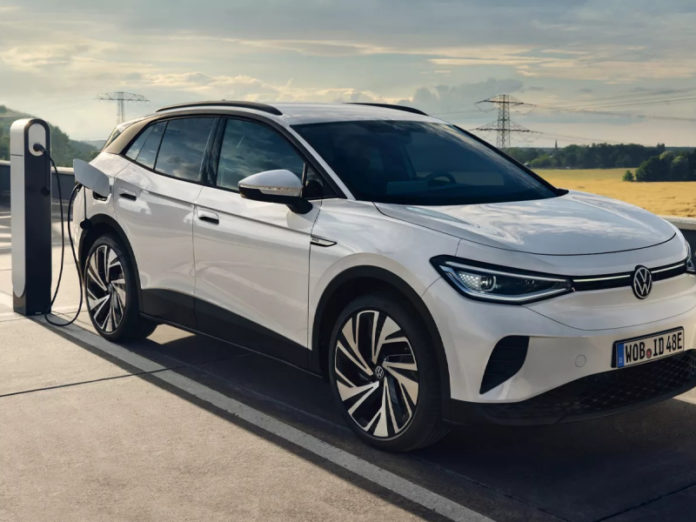
Image: VW
The blockchain-based ‘smart charging solution’ enables EV owners to match their charging requirements with selected renewable options.
The solution utilises a 24/7 matching algorithm offering user control and granularity on charging sessions, including selecting the date and time, the type of renewable energy and the specific facility it is drawn from.
The solution is reported as having been tested over three months with several VW ID4s, primarily around Wolfsburg in Germany where the company is headquartered. Charging sessions ran from a couple of hours to spanning several days and drawing on the abundant wind and solar generation in the area.
“This is the first time ever that an EV has been charged using a verified 24/7-matched clean energy strategy,” asserts Jesse Morris, CEO at Energy Web.
“The purpose of this project has been to showcase that advanced EV charging solutions can empower EV owners to set their own preferences for when and where they get their energy. For instance, they can select to charge using wind and solar resources, from energy assets within a 10km radius and target 80% charge by 5PM – all from within a user-friendly application, with an accurate breakdown of their session’s carbon footprint.”
The smart charging app was developed by integrating Energy Web’s open-source 24/7 toolkit into Volkswagen EV solution subsidiary Elli’s green charging app, which provides users with access to over 300,000 public charging points across Europe.
Volkswagen Group Innovation is currently exploring how the solution can be further developed and rolled out at a production scale.
It is likely to be of particular interest to corporate EV fleet operators/owners, as drivers will be able to show proof of renewable energy purchases and enable tracking of granular energy usage for carbon accounting.
The solution is one of a number of EV charging solutions under development by Energy Web and partners. Another with Belgian TSO Elia is ReBeam, which is intended to enable EV drivers to charge with their provider of choice when on the road, while in the UK a renewable verification use case forms part of an ‘Economy of things’ platform under development with Vodafone and Mastercard.